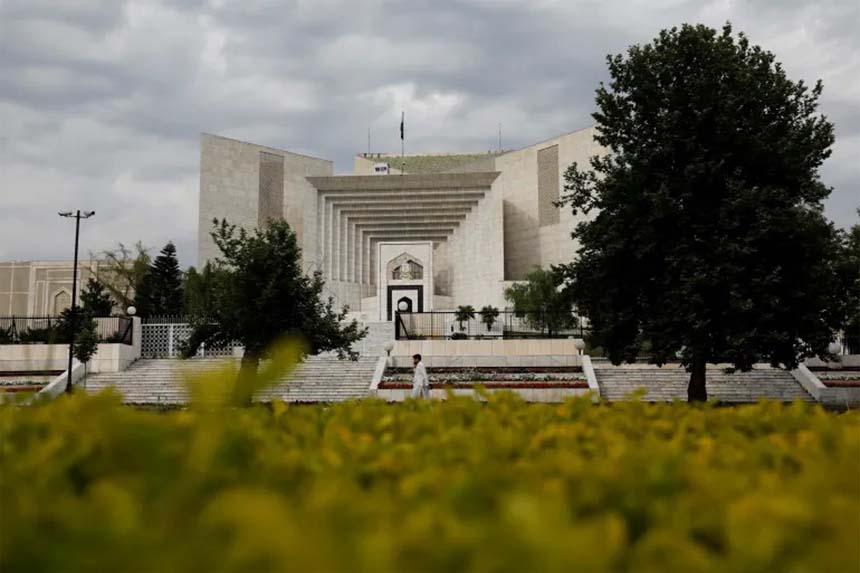Al Jazeera :
Pakistan’s Supreme Court on Friday reinstated amendments made to the country’s accountability law two years ago, overturning a previous decision by a three-member bench.
In September last year, the top court under then-Chief Justice Umar Ata Bandial had, in a 2-1 verdict, struck down changes to the National Accountability Ordinance (NAO), as had been demanded by former Prime Minister Imran Khan.
Khan had argued that the amendments, brought by a coalition government under current Prime Minister Shehbaz Sharif after Khan was removed from office, were aimed at benefitting his rival politicians and protecting their alleged corruption.
However, the federal government filed appeals after the Bandial verdict, and a five-member bench, led by present Chief Justice Qazi Faez Isa, began hearings in May, culminating in a unanimous 5-0 decision reversing the earlier verdict.
In the latest verdict lies an irony, say analysts. The reinstated amendments might help Khan, who had sought their removal.
The National Accountability Bureau (NAB), the country’s anticorruption body, was founded during the tenure of former military ruler General Pervez Musharraf (1999-2008). Over the years, politicians have often accused the NAB of being used as a tool for political victimisation.
The body has the authority to investigate allegations related to financial matters of any civilian in government, including politicians and bureaucrats. However, the law is not extended to the military or the judiciary.
The Pakistan Democratic Movement (PDM), a coalition of political parties that came to power in April 2022 after Khan’s ouster via a no-confidence vote, had pushed through amendments to the NAO. Key changes included reducing the tenure of NAB’s chairperson to three years and limiting NAB’s jurisdiction to cases involving corruption of 500 million rupees ($1.8m) or more.
Another amendment exempted federal cabinet decisions from NAB investigation, while ongoing inquiries and trials would be transferred to other relevant authorities.
Khan, who built his political identity around fighting corruption, claimed that the amendments were a deliberate effort by the PDM to protect politicians from accountability and legitimise illegal acts.
But in its 16-page ruling, the top court on Friday emphasised the separation of powers sought in the amendments between the legislature and the judiciary. “The Chief Justice and the Judges of the Supreme Court are not the gatekeepers of Parliament,” it said. Sayed Zulfiqar Bukhari, a senior PTI leader and close aide to Khan, acknowledged the mixed nature of the ruling. Speaking to Al Jazeera from London, he said the court’s decision helped standardise NAB procedures and prevent arbitrary arrests.




